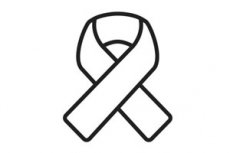New publications
Fewest new HIV cases since late 1980s: UNAIDS report
Last reviewed: 03.07.2025

All iLive content is medically reviewed or fact checked to ensure as much factual accuracy as possible.
We have strict sourcing guidelines and only link to reputable media sites, academic research institutions and, whenever possible, medically peer reviewed studies. Note that the numbers in parentheses ([1], [2], etc.) are clickable links to these studies.
If you feel that any of our content is inaccurate, out-of-date, or otherwise questionable, please select it and press Ctrl + Enter.

The number of new HIV infections last year was the lowest since the late 1980s, the United Nations said Tuesday, but the pace of decline remains too slow.
According to a new UNAIDS report, about 1.3 million people will become infected with the virus in 2023. That is still three times the number needed to reach the UN goal of ending AIDS as a public health threat by 2030.
In 2023, about 630,000 people died from AIDS-related illnesses, the lowest number since a peak of 2.1 million in 2004. Much of the progress comes from antiretroviral therapy, which reduces the level of the virus in patients' blood.
Yet of the nearly 40 million people living with HIV worldwide, some 9.3 million are not receiving treatment, the report warns. New HIV infections are on the rise in 28 countries.
Slow progress in prevention
An HIV prevention drug called pre-exposure prophylaxis (PrEP) remains difficult to access. In 2023, only 15% of people who needed PrEP were receiving the drug.
UNAIDS Deputy Director Christina Stegling noted that progress has been made thanks to biomedical advances, human rights protection and community activism. However, discrimination and stigmatization of people with HIV are holding back the fight against the epidemic.
For example, the passage of a strict anti-gay law in Uganda last year led to a sharp decline in access to PrEP in that country.
New "breakthrough" drug
The drug lenacapavir, which in early trials was 100% effective in preventing HIV infection, has been hailed as a "breakthrough" in the fight against the epidemic. However, the high cost of the drug, which can reach $40,000 per person per year, has raised concerns.
Pharmaceutical company Gilead recently struck deals with generic manufacturers to make the drug available in some low-income countries. But campaigners warn that millions of people will be left without access to the drug.
"Breakthroughs will only have a real impact on reducing new infections if they are available to everyone," Stegling said.
UNAIDS continues to emphasize the need to eliminate discrimination and ensure equal access to treatment to bring the world closer to ending AIDS.
